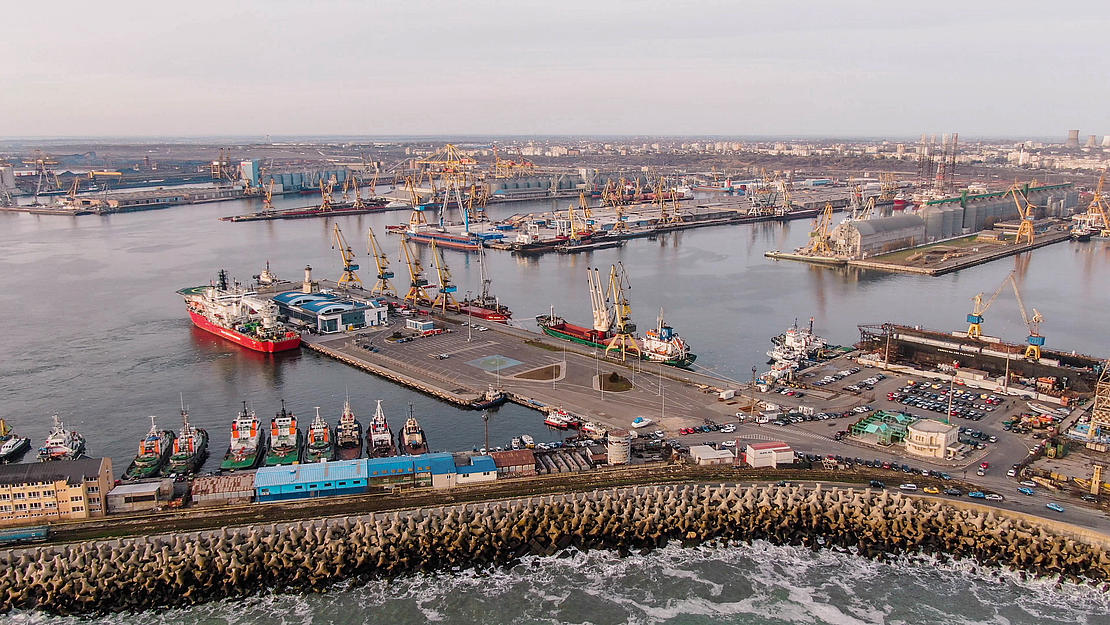14.10.2024
Romanian-German-Estonian Team Delivers Specification for Port Community System (PCS) to Port of Constanta
Romanian IT company Critical Technologies SRL (consortium leader), German port consultancy HPC Hamburg Port Consulting (HPC), and two Estonian maritime and shipping partners, EN Shipping OÜ and Saaresalu OÜ, have delivered a tailor-made specification for a Port Community System for the Port of Constanta, which is intended to be implemented.

The Port of Constanta is on a strategic mission to become a premier gateway in the Black Sea region. To achieve this, the port is making significant investments in both its physical and digital infrastructure. As part of this transformative effort, the port aims to streamline communication within its community by establishing a state-of-the-art Port Community System (PCS).
Recognizing the need for a comprehensive feasibility study, the port launched a public tender, which was won by the consortium. HPC has led the overall project management while the other project tasks were distributed between the business partners. The scope of the tasks included port process analysis, data management analysis, governance model, business model, and risk analysis. As a result, the port will receive a clear specification and recommendation for the implementation of the PCS. This system will enhance efficiency, coordination, and communication across the port, solidifying the Port of Constanta's position as a key hub in the Black Sea.
Mihai Teodorescu, the Executive Director of the Port Administration states that “Building on the comprehensive feasibility study, we are now ready to develop the Port Community System. This innovative platform will revolutionize information exchange within the port, offering a secure and intelligent communication channel for all stakeholders. By linking the port administration, operators, businesses, and essential institutions like customs, ANSVA, and border police, the PCS will drive unparalleled efficiency and cooperation, significantly improving performance and service quality.”
Dragos Basmaluta, CEO of Critical Technologies mentioned: “By implementation of its cutting-edge Port Community System, designed to enhance efficiency, communication, and coordination among all stakeholders involved in port operations, the Port of Constanta will consolidate its position as a very important logistic asset for Romania and The European Union.”
Frank Busse, Partner and Vice President Europe at HPC, summarized the key takeaways: "It’s essential to involve stakeholders early and understand their unique processes and requirements. Rather than simply digitizing existing processes, we must challenge the status quo and engineer digital-enabled solutions that optimize efficiency and performance. Additionally, having a robust game plan to mitigate external risks, such as legislative restrictions on electronic data exchange and the transition from paper-based processes, is crucial. These strategies are critical for the successful development and implementation of a PCS.”
Eero Naaber from EN Shipping states that “digitalization is first and foremost a change in people's behavior from a paper-based process to a digital-based process.. However, for this to happen successfully, the digital system must provide a user friendly and secure environment that people can trust. In changing these behavioral habits, it is extremely important to involve the participants during the planning of the digital system and, of course, during the subsequent development.”
Riina Palu from Saaresalu, responsible for governance modelling and risk mitigation in the project, emphasizes that good governance of a digital solution is essential for effectively managing risk related to both the environment and the system itself. “It establishes a framework for decision-making involving port community stakeholders that considers potential risks and implements strategies to mitigate them. Clear roles and responsibilities, transparent processes, and accountability measures are key elements of a well-established digital governance”.